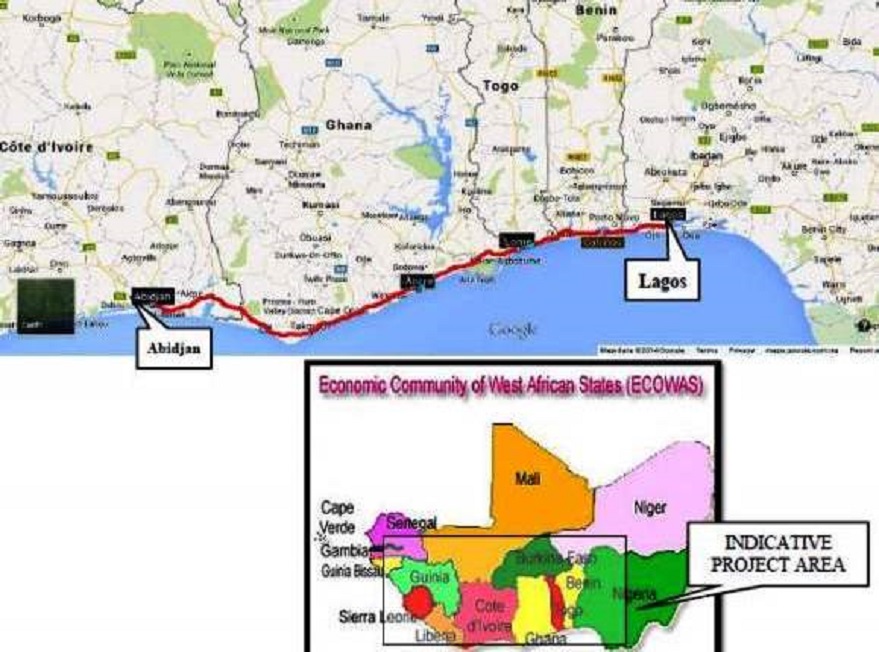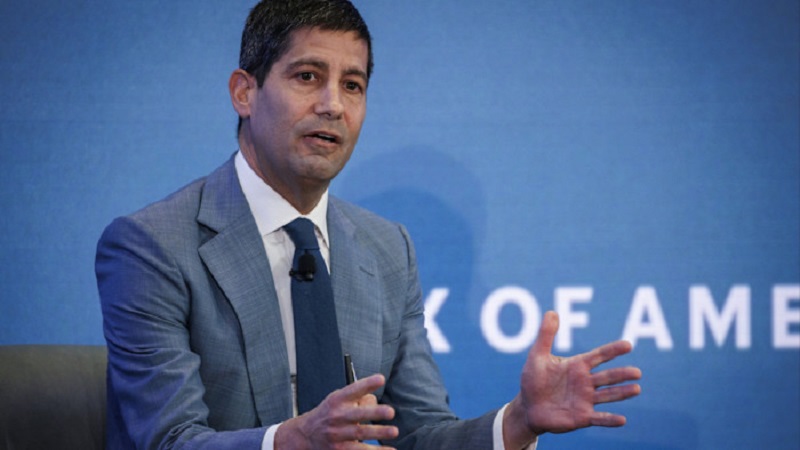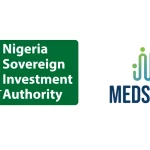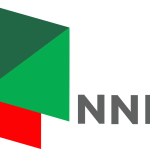World
Nigeria, Ghana Expediting Actions On Abidjan-Lagos Highway Construction

By Kestér Kenn Klomegâh
Popularly referred to as the Abidjan-Lagos corridor, this is a long highway which stretches from Abidjan to Lagos, crossing five independent states (Côte d’Ivoire, Ghana, Togo, Benin, and Nigeria) from west to east, and includes two political capitals and many regional economic centres.
By European standards too long, but this highway, which has a length of approximately 965 kilometres, is considered the most mega-project to undertake in Africa.
Due to the countries’ linguistic, cultural and political differences, the region’s economic potential has not yet been fully exploited. There has been little alignment of standards and construction of common infrastructure, and even within the countries, transportation links are often unreliable. The idea of undertaking this transport connection has still been on the planning table, with its biggest headache about the source of finance.
Reports emerged that there had been a series of negotiations and meetings at the highest levels to determine effective ways of financing and its final realisation in the region. In this extreme case for this giant infrastructure, global key players offer reassurance, but there has not been any noticeable successful financial commitment.
The Ministerial Steering Committee of the Abidjan-Lagos Corridor Highway Development Project held its 19th in May 2023 to take decisions on expediting the completion of technical studies, securing lands for the right of way, financing the construction of the highway project and the operationalization of the Abidjan-Lagos Corridor Management Authority (ALCoMA).
Welcoming participants on behalf of the ECOWAS Commission, the Commissioner for Infrastructure, Energy and Digitalization, Sediko Douka, lauded the commitment of the member countries and highlighted the fact that the Abidjan-Lagos Highway remains a flagship project for the Commission and is one of the interventions that could change the narrative of ECOWAS by highlighting the contribution to the total economic growth of community citizens with projects in transport, health, agriculture, customs, migration, education and more.
“It will enable community citizens to appreciate better and be informed about tangible achievements of ECOWAS. Indeed, we must accentuate the visibility of ECOWAS achievement on physical infrastructure projects in the area of transport, energy, telecom, water resource and agriculture, just as this project has been presented at various African Investment Forums by the African Development Bank, he said.
Commissioner Douka, however, charged the participants to take an interest in ensuring that the project becomes a reality. “We keep calling on both public and private investors to accompany the countries and ECOWAS in the realization of this visionary venture,” Douka added.
The feasibility and preliminary design studies have been completed, whiles the final phases should be completed before the end of this year. “On resource mobilization, it should be noted that ECOWAS has just adopted a new regulatory framework on the Public Private Partnership (PPP) that is an incentive for the entry of Private Sector in large Investments like the nature of this project,” according to the Commissioner.
Ministers of Roads and Works of Corridor Countries took turns to express their continued commitment to support the completion of the technical studies and accompany ECOWAS and Development Partners to raise the needed investment to fund the project.
Chairman of the Ministerial Steering Committee and Minister of Public Works and Housing of the Federal Republic of Nigeria, Babatunde Raji Fashola, expressed his pride at the achievements so far attained from the outset. He highlighted that projects of such magnitude usually encounter several challenges at the preparatory stages, but through the hard work of Project Engineers and Member States, most challenges have been overcome.
“We are building a road over 1,000 kilometres, across five (5) countries, across a diversity of languages and political structures, in a modern era of climate change, people’s rights and sustainability on our horizon. We have heard issues about compensation, environment, social impact assessment, resettlement and action plan etc., because, at the end of the day, this is all about people. So, we must build in a way that takes care not only of people’s interest but also climate and other diversities,” noted Babatunde Raji Fashola.
In this case, partners and stakeholders are still highly optimistic about the completion of the necessary reports to address all the obstacles relating to the project. “If we get this right, then constructing the project will be very easy, so please do not despair. It may look difficult, but with my little experience, this is the hardest part, and we are almost there,” he said and intimated that the operationalization of the Management Authority that will manage the corridor highway development project has commenced with the formation of the Board of Directors.
Vice President of the Republic of Ghana delivered a keynote address during the meeting through Yaw Osafo Maafo, Senior Advisor to the President. The Vice President commended the ministers and ECOWAS for their sustained effort and strong collaboration in preparing the Corridor Highway Project. He hinted that in preparation for the construction of Ghana’s Multinational Highway section, Ghana has embarked on massive sensitization drives along the host communities.
He expressed excitement over the assurance of the African Development Bank (AfDB) to raise the required funds for the highway construction, describing the project as top on the agenda of the Ghanaian government. “The Abidjan-Lagos Corridor Highway Project is on the priority list of the Government of Ghana, and we keenly look forward to the day that the sword will be raised for the commencement of this construction. We believe that this project will give a new dimension to ECOWAS, and we believe it will change the economies of the five (5) countries and the region, and therefore whatever we can do to support it, we will do it,” concluded Yaw Osafo Maafo.
Construction of a highway route from Abidjan to Lagos is tentatively scheduled to begin in 2025. The project is expected to cost $15 billion and will significantly increase regional economic integration. The African Development Bank (AfDB) is involved in the financing. In broad terms, it contributes to poverty reduction and economic and social development in the least developed African countries by providing concessional funding for projects and programs and technical assistance for studies and capacity-building activities.
Its materialisation largely depends on sustained collective efforts to the corridor highway project and strong collaboration. Facilitating the sub-region movement of goods and people. It will connect the industrial zones and move products and services across West Africa. Consequently, this project will give a new dimension to ECOWAS. High gratitude goes to the African Development Bank (AfDB) which is leading the consortium to raise the funds for this project in the region.
Worth re-emphasizing here the Abidjan-Lagos Corridor Highway implementation and its related significance to the African Continental Free Trade Area in the West African region. It has the full potential for achieving the ultimate goals of the single market under discussion. This highway infrastructure involves the five corridor member countries: Nigeria, Benin, Togo, Ghana and Cote d’Ivoire.
The population within the region is experiencing rapid growth, and nearly 50 million people are expected to live within the corridor by 2035. The Abidjan-Lagos Corridor Highway offers an opportunity for a significant portion of West Africa’s economic output to be generated, and it is also envisaged that cities within the corridor will become the most economically developed across the West Africa region – in the Economic Community of West Africa.
World
Today’s Generation of Entrepreneurs Value Flexibility, Autonomy—McNeal-Weary

By Kestér Kenn Klomegâh
The Young African Leaders Initiative (YALI) is the United States’ signature step to invest in the next generation of African leaders. Since its establishment in 2010 by Obama administration, YALI has offered diverse opportunities, including academic training in leadership, governance skills, organizational development and entrepreneurship, and has connected with thousands of young leaders across Africa. This United States’ policy collaboration benefits both America and Africa by creating stronger partnerships, enhancing mutual prosperity, and ensuring a more stable environment.
In our conversation, Tonya McNeal-Weary, Managing Director at IBS Global Consulting, Inc., Global Headquarters in Detroit, Michigan, has endeavored to discuss, thoroughly, today’s generation of entrepreneurs and also building partnerships as a foundation for driving positive change and innovation in the global marketplace. Here are the excerpts of her conversation:
How would you describe today’s generation of entrepreneurs?
I would describe today’s generation of entrepreneurs as having a digital-first mindset and a fundamental belief that business success and social impact can coexist. Unlike the entrepreneurs before them, they’ve grown up with the internet as a given, enabling them to build global businesses from their laptops and think beyond geographic constraints from day one. They value flexibility and autonomy, often rejecting traditional corporate ladders in favor of building something meaningful on their own terms, even if it means embracing uncertainty and financial risk that previous generations might have avoided.
And those representing the Young African Leaders Initiative, who attended your webinar presentation late January 2026?
The entrepreneurs representing the Young African Leaders Initiative are redefining entrepreneurship on the continent by leveraging their unique perspectives, cultural heritage, and experiences. Their ability to innovate within local contexts while connecting to global opportunities exemplifies how the new wave of entrepreneurs is not confined by geography or conventional expectations.
What were the main issues that formed your ‘lecture’ with them, Young African Leaders Initiative?
The main issues that formed my lecture for the Young African Leaders Initiative were driven by understanding the importance of building successful partnerships when expanding into the United States or any foreign market. During my lecture, I emphasized that forming strategic alliances can help entrepreneurs navigate unfamiliar business environments, access new resources, and foster long-term growth. By understanding how to establish strong and effective partnerships, emerging leaders can position their businesses for sustainable success in global markets. I also discussed the critical factors that contribute to successful partnerships, such as establishing clear communication channels, aligning on shared goals, and cultivating trust between all parties involved. Entrepreneurs must be proactive in seeking out partners who complement their strengths and fill gaps in expertise or resources. It is equally important to conduct thorough due diligence to ensure that potential collaborators share similar values and ethical standards. Ultimately, the seminar aimed to empower YALI entrepreneurs with practical insights and actionable strategies for forging meaningful connections across borders. Building successful partnerships is not only a pathway to business growth but also a foundation for driving positive change and innovation in the global marketplace.
What makes a ‘leader’ today, particularly, in the context of the emerging global business architecture?
In my opinion, a leader in today’s emerging global business architecture must navigate complexity and ambiguity with a fundamentally different skill set than what was previously required. Where traditional leadership emphasized command-and-control and singular vision, contemporary leaders succeed through adaptive thinking and collaborative influence across decentralized networks. Furthermore, emotional intelligence has evolved from a soft skill to a strategic imperative. Today, the effective modern leader must possess deep cross-cultural intelligence, understanding that global business is no longer about exporting one model worldwide but about genuinely integrating diverse perspectives and adapting to local contexts while maintaining coherent values.
Does multinational culture play in its (leadership) formation?
I believe multinational culture plays a profound and arguably essential role in forming the kind of leadership required in today’s global business environment. Leaders who have lived, worked, or deeply engaged across multiple cultural contexts develop a cognitive flexibility that’s difficult to replicate through reading or training alone. More importantly, multinational exposure tends to dismantle the unconscious certainty that one’s own way of doing things is inherently “normal” or “best.” Leaders shaped in multicultural environments often develop a productive discomfort with absolutes; they become more adept at asking questions, seeking input, and recognizing blind spots. This humility and curiosity become strategic assets when building global teams, entering new markets, or navigating geopolitical complexity. However, it’s worth noting that multinational experience alone doesn’t automatically create great leaders. What matters is the depth and quality of cross-cultural engagement, not just the passport stamps. The formation of global leadership is less about where someone has been and more about whether they’ve developed the capacity to see beyond their own cultural lens and genuinely value differences as a source of insight rather than merely tolerating them as an obstacle to overcome.
In the context of heightening geopolitical situation, and with Africa, what would you say, in terms of, people-to-people interaction?
People-to-people interaction is critically important in the African business context, particularly as geopolitical competition intensifies on the continent. In this crowded and often transactional landscape, the depth and authenticity of human relationships can determine whether a business venture succeeds or fails. I spoke on this during my presentation. When business leaders take the time for face-to-face meetings, invest in understanding local priorities rather than imposing external agendas, and build relationships beyond the immediate transaction, they signal a different kind of partnership. The heightened geopolitical situation actually makes this human dimension more vital, not less. As competition increases and narratives clash about whose model of development is best, the businesses and nations that succeed in Africa will likely be those that invest in relationships characterized by reciprocity, respect, and long-term commitment rather than those pursuing quick wins.
How important is it for creating public perception and approach to today’s business?
Interaction between individuals is crucial for shaping public perception, as it influences views in ways that formal communications cannot. We live in a society where word-of-mouth, community networks, and social trust areincredibly important. As a result, a business leader’s behavior in personal interactions, their respect for local customs, their willingness to listen, and their follow-through on commitments have a far-reaching impact that extends well beyond the immediate meeting. The geopolitical dimension amplifies this importance because African nations now have choices. They’re no longer dependent on any single partner and can compare approaches to business.
From the above discussions, how would you describe global business in relation to Africa? Is it directed at creating diverse import dependency?
While it would be too simplistic to say global business is uniformly directed at creating import dependency, the structural patterns that have emerged often produce exactly that outcome, whether by design or as a consequence of how global capital seeks returns. Global financial institutions and trade agreements have historically encouraged African nations to focus on their “comparative advantages” in primary commodities rather than industrial development. The critical question is whether global business can engage with Africa in ways that build productive capacity, transfer technology, develop local talent, and enable countries to manufacture for themselves and for export—or whether the economic incentives and power irregularities make this structurally unlikely without deliberate policy intervention.
World
Russia Expands Military-Technical Cooperation With African Partners

By Kestér Kenn Klomegâh
Despite geopolitical complexities, tensions and pressure, Russia’s military arms and weaponry sales earned approximately $15 billion at the closure of 2025, according to Kremlin report. At the regular session, chaired by Russian President Vladimir Putin on Jan. 30, the Commission on Military and Technical Cooperation with Foreign Countries analyzed the results of its work for 2025, and defined plans for the future.
It was noted that the system of military-technical cooperation continued to operate in difficult conditions, and with increased pressure from the Western countries to block business relations with Russia. The meeting, however, admitted that export contracts have generally performed sustainably. Russian military products were exported to more than 30 countries last year, and the amount of foreign exchange exceeded $15 billion.
Such results provide an additional opportunity to direct funds to the modernization of OPC enterprises, to the expansion of their production capacities, and to advanced research. It is also important that at these enterprises a significant volume of products is civilian products.
The Russian system of military-technical cooperation has not only demonstrated effectiveness and high resilience, but has created fundamental structures, which allow to significantly expand the “geography” of supplies of products of military purpose and, thus strengthen the position of Russia’s leader and employer advanced weapons systems – proven, tested in real combat conditions.
Thanks to the employees of the Federal Service for Military Technical Cooperation and Rosoboronexport, the staff of OPC enterprises for their good faith. Within the framework of the new federal project “Development of military-technical cooperation of Russia with foreign countries” for the period 2026-2028, additional measures of support are introduced. Further effective use of existing financial and other support mechanisms and instruments is extremely important because the volumes of military exports in accordance with the 2026 plan.
Special attention would be paid to the expansion of military-technological cooperation and partnerships, with 14 states already implementing or in development more than 340 such projects.
Future plans will allow to improve the characteristics of existing weapons and equipment and to develop new promising models, including those in demand on global markets, among other issues – the development of strategic areas of military-technical cooperation, and above all, with partners on the CIS and the CSTO. This is one of the priority tasks to strengthen both bilateral and multilateral relations, ensuring stability and security in Eurasia.
From January 2026, Russia chairs the CSTO, and this requires working systematically with partners, including comprehensive approaches to expanding military-technical relations. New prospects open up for deepening military-technical cooperation and with countries in other regions, including with states on the African continent. Russia has been historically strong and trusting relationships with African countries. In different years even the USSR, and then Russia supplied African countries with a significant amount of weapons and military equipment, trained specialists on their production, operation, repair, as well as military personnel.
Today, despite pressure from the West, African partners express readiness to expand relations with Russia in the military and military-technical fields. It is not only about increasing supplies of Russian military exports, but also about the purchase of other weapons, other materials and products. Russia has undertaken comprehensive maintenance of previously delivered equipment, organization of licensed production of Russian military products and some other important issues. In general, African countries are sufficient for consideration today.
World
Trump Picks Kevin Warsh to Succeed Jerome Powell as Federal Reserve Chair

By Adedapo Adesanya
President Donald Trump has named Mr Kevin Warsh as the successor to Mr Jerome Powell as the Federal Reserve chair, ending a prolonged odyssey that has seen unprecedented turmoil around the central bank.
The decision culminates a process that officially began last summer but started much earlier than that, with President Trump launching a criticism against the Powell-led US central bank almost since he took the job in 2018.
“I have known Kevin for a long period of time, and have no doubt that he will go down as one of the GREAT Fed Chairmen, maybe the best,” Mr Trump said in a Truth Social post announcing the selection.
US analysts noted that the 55-year old appear not to ripple market because of his previous experience at the apex bank as Governor, with others saying he wouldn’t always do the bidding of the American president.
If approved by the US Senate, Mr Warsh will take over the position in May, when Mr Powell’s term expires.
Despite having argued for reductions recently, “Warsh has a long hawkish history that markets have not forgotten,” one analyst told Bloomberg.
President Trump has castigated Mr Powell for not lowering interest rates more quickly. His administration also launched a criminal investigation of Powell and the Federal Reserve earlier this month, which led Mr Powell to issue an extraordinary rebuke of President Trump’s efforts to politicize the independent central bank.
-

 Feature/OPED6 years ago
Feature/OPED6 years agoDavos was Different this year
-
Travel/Tourism9 years ago
Lagos Seals Western Lodge Hotel In Ikorodu
-

 Showbiz3 years ago
Showbiz3 years agoEstranged Lover Releases Videos of Empress Njamah Bathing
-

 Banking8 years ago
Banking8 years agoSort Codes of GTBank Branches in Nigeria
-

 Economy3 years ago
Economy3 years agoSubsidy Removal: CNG at N130 Per Litre Cheaper Than Petrol—IPMAN
-

 Banking3 years ago
Banking3 years agoSort Codes of UBA Branches in Nigeria
-

 Banking3 years ago
Banking3 years agoFirst Bank Announces Planned Downtime
-

 Sports3 years ago
Sports3 years agoHighest Paid Nigerian Footballer – How Much Do Nigerian Footballers Earn












